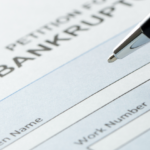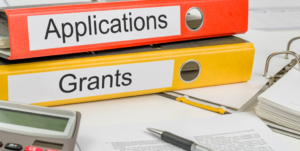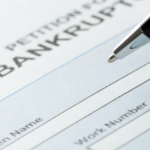
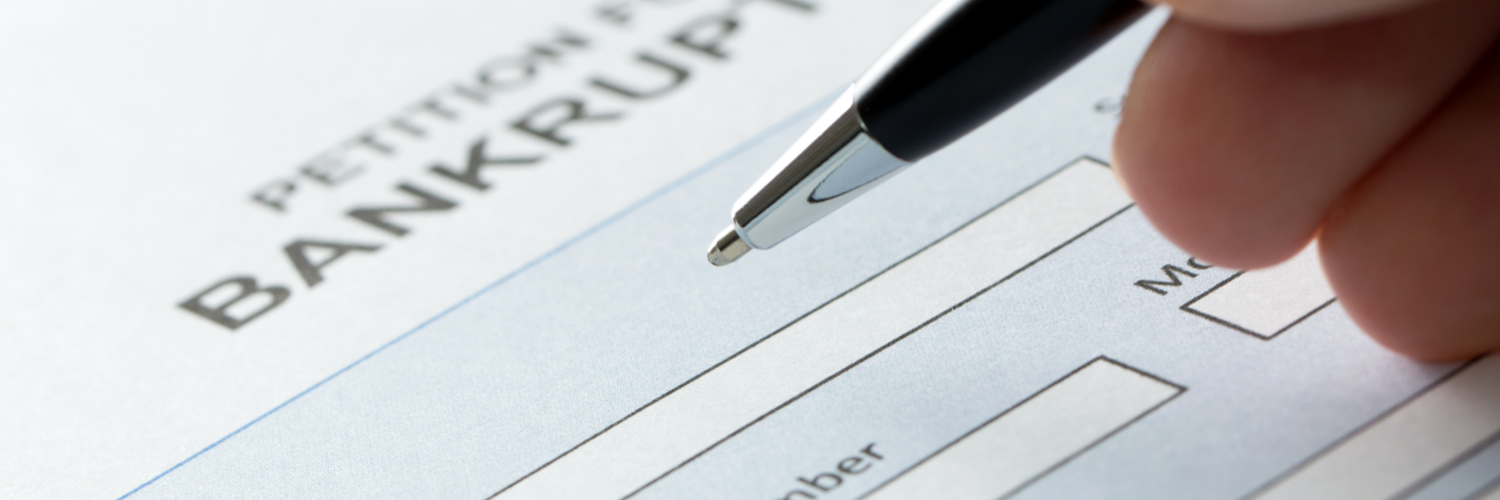
kinds of assets you might keep possession of during an insolvency. If you're worried about losing your house, automobile or individual belongings because you lag on your bills, filing for bankruptcy in California may be an alternative to remove financial obligation or improve repayment terms. To declare bankruptcy, you require to see if you qualify and then follow the actions detailed in this guide. What is personal bankruptcy?
Insolvency is a legal action you can take if you're unable to pay your arrearages. Depending upon the kind of personal bankruptcy you submit, you might either return the possessions that you owe money on in return for forgiveness of your debts or restructure how these debts are paid back. Filing for bankruptcy has an immediate impact on your credit history, which may make obtaining harder while the insolvency appears on your credit report. There are 2 kinds of insolvency people might file.
Chapter 7 insolvency
A Chapter 7 bankruptcy completely dissolves your financial obligation so you do not owe money on that financial obligation. Before you can have your financial obligations discharged, however, you need to liquidate your properties to pay as much of your debt as possible. The court chooses which of your financial institutions are entitled to the profits from the sale of your possessions.
This is a choice if you have safeguarded assets due to exemptions or if the majority of your debts are unsecured. It's likewise the quickest way to file for personal bankruptcy and can be completed in 4 to 6 months. Chapter 13 bankruptcy 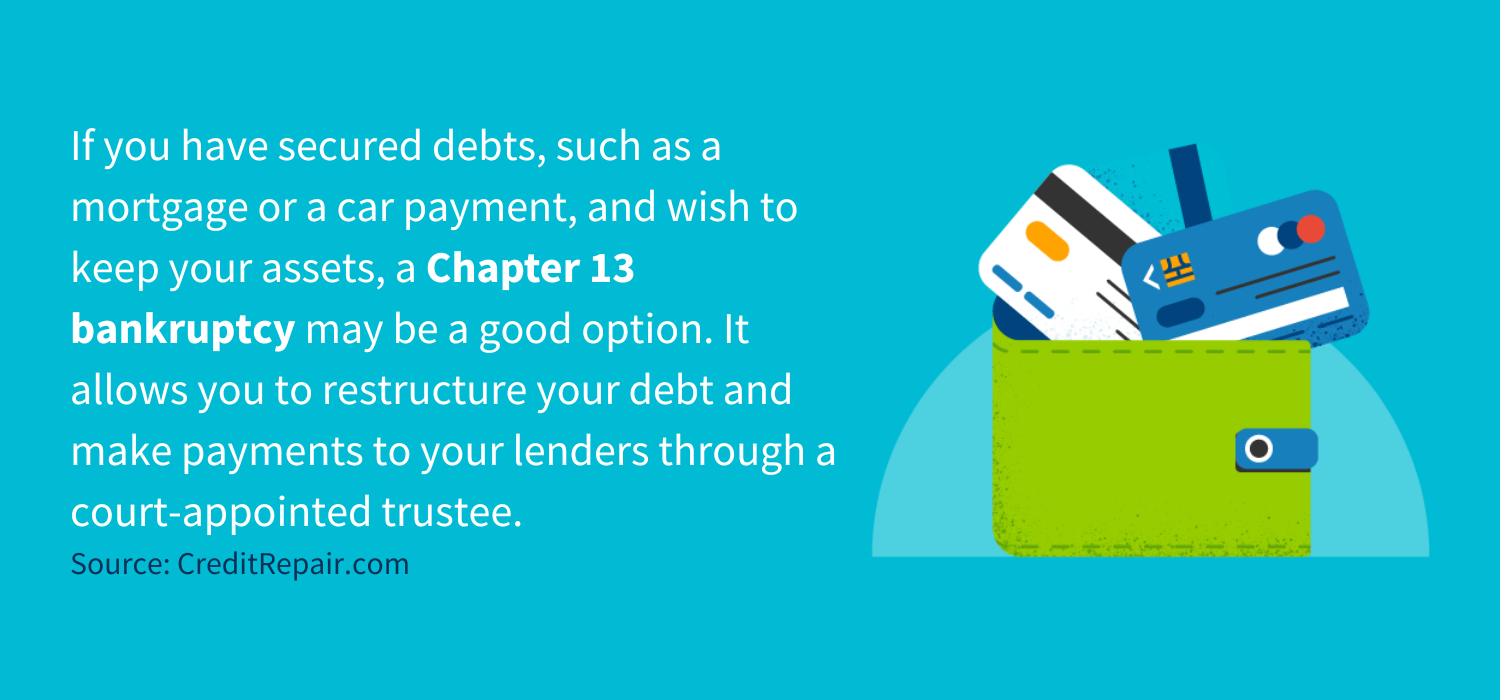
If you have protected debts, such as a mortgage or a vehicle payment, and wish to keep your possessions, a Chapter 13 personal bankruptcy might be the much better alternative. This kind of insolvency allows you to reorganize your financial obligation and pay to your lending institutions through a court-appointed trustee. In most cases, you're able to conserve money on the interest you owe on your arrearages. Chapter 13 insolvencies can take 3 to five years to discharge because you're
required to make payments in installments
over this time. Nevertheless, it's a choice if you're aiming to avoid foreclosure on your home or vehicle repossession. How to declare bankruptcy in California Filing personal bankruptcy in California isn't that different from other states due to the fact that bankruptcy is managed under federal law rather than state laws. The primary distinction is that California has different laws concerning the kinds of assets you might keep possession of during an insolvency. For example, federal insolvency laws permit you to keep only$ 25,150 in equity in real estate, while California bankruptcy laws allow either $29,275 or $75,000 depending upon how you file. Married couples with a joint bankruptcy petition might be qualified to keep real estate as much as $150,000.
If you're thinking about declaring insolvency, here's the procedure you'll need to follow:
- Do your due diligence and research personal bankruptcy to identify if it's best for you. The most crucial concerns you require to respond to are if you qualify for insolvency and if there are alternatives that might be better.
- While it's possible to apply for bankruptcy without a lawyer, many people would take advantage of an attorney's expertise and experience. You must look for a lawyer who specializes in personal bankruptcy law.
- There are a lot of monetary documents you require to collect before you can apply for personal bankruptcy, such as pay stubs and income declarations, costs, bank statements, tax returns and other financial documents. If you retain a bankruptcy lawyer, they can help you collect this details.
- Stop paying on the kinds of debt that receive insolvency. Please note that some debts can't be discharged through bankruptcy, including student loans, domestic assistance contracts such as kid support or spousal support and a lot of tax debts. After you file a movement for bankruptcy, the court will inform your lenders, and they'll stop demanding payment on your financial obligations.
- To get approved for bankruptcy, you require to sign up for a credit counseling class. This is meant to teach you abilities that may help you spending plan more effectively in the future so you don't fall behind on your expenses.
- After you declare personal bankruptcy, a trustee or representative of the U.S. Trustee program will perform a 341 meeting that you are required to participate in. During this conference, your creditors can ask concerns about your possessions and financial obligations. If you're filing Chapter 13, there will also be a verification hearing. In this meeting, a personal bankruptcy judge will evaluate whether you qualify for insolvency and authorize a payment plan so you can repay your debts. A judge might authorize or decline a payment plan or send you back to modify it. After completing your credit counseling class, you'll require to provide the court with your course certificate before your financial obligation can be released.
What are California's bankruptcy exemptions?
Exempt property consists of assets you own that can't be liquidated to repay your lenders. Exemptions might consist of the following:
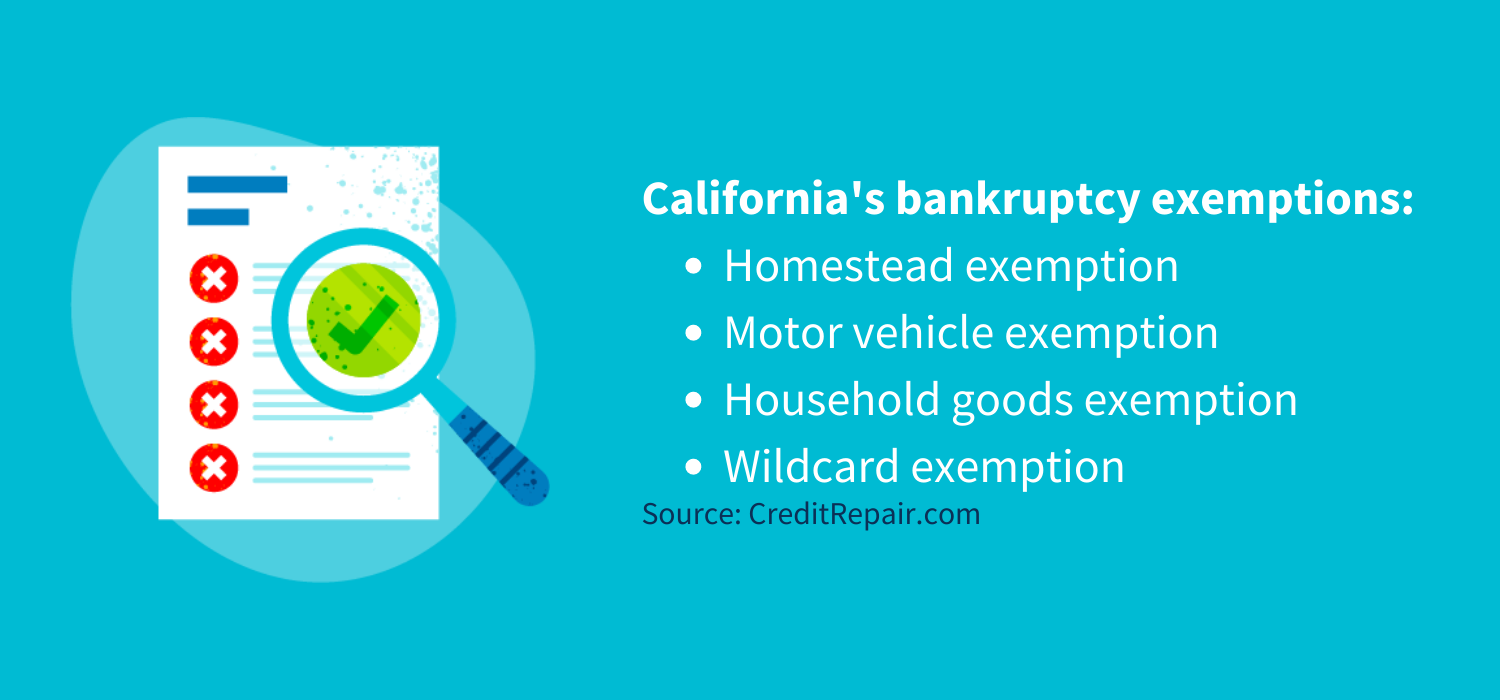
California homestead exemption The California homestead exemption permits you to safeguard the equity in your home. If you own more than one residential or commercial property, you can just utilize this exemption for the residential or commercial property you reside in, and your extra residential or commercial properties aren't secured. There are two systems you can select when stating exemptions, and the one you choose impacts how much equity you might state exempt. There are also requirements about for how long you've owned your home.
It likewise does not mean you'll instantly get to keep your home. In some situations, trustees might decide to sell your property, pay you back any exempted quantity of equity from the earnings of the sale and utilize the rest to pay lenders.
California automobile exemption
If you own a lorry that's vital to your ability to get to and from work and to perform everyday activities, you can use this exemption to protect some of the equity in your lorry. If you owe more on your automobile than the exemption allows, you'll need to pay back the rest in a Chapter 13 personal bankruptcy or give up the vehicle if you're submitting Chapter 7.
California household goods exemption
This exemption enables you to declare any product in your house that deserves less than $800. The items you state must be considered required, so take care when picking what you declare as exempt. California wildcard exemption
If you receive this exemption, you can use any part of the homestead equity you didn't utilize plus an extra $1,700 to state any home you pick as exempt. These are just some of the exemptions that are available under California law. To learn what else might be exempt, you need to consult with a lawyer so you can decide the best course of action. Will applying for bankruptcy in California eliminate your debt?
Filing insolvency in California can remove numerous types of debt. However, there are some kinds of financial obligation you might still be accountable for, even if you pick to file Chapter 7 personal bankruptcy. In a Chapter 13 personal bankruptcy, some of your financial obligation might be released immediately due to exemptions, but you'll need to pay the rest in installments.
The types of financial obligation you might not be able to release include tax debts and student loans. While discharging student debt is challenging, it's not impossible, so talk about with your lawyer whether it deserves it to attempt. Tax debts can't be eliminated, however you might have the ability to repay them in time as part of a Chapter 13 personal bankruptcy. What home will you get to keep after filing?
If you've filed a Chapter 7 insolvency, you'll lose any home that's not exempt that you owe cash on. In a Chapter 13 insolvency, you're often enabled to keep your automobile, house and other residential or commercial property while you pay back the financial obligation. If you default on your insolvency payments, the court-appointed trustee might file a motion to have your case dismissed, which would enable your loan providers to foreclose on your home or reclaim your car. Is insolvency the best choice for you?
If you owe medical debt, are behind on your home or car payments or have a lot of charge card financial obligation, it's easy to feel anguish over your financial circumstance. While personal bankruptcy is a choice, it's just best in specific situations.
The credit advisors at CreditRepair.com can assist you examine all your options before you take this step. We're also able to help you dispute mistakes on your credit report
Keep in mind: The information offered on CreditRepair.com does not, and is not planned to, function as legal, monetary or credit suggestions; instead, it is for basic informative purposes only.
Written by Paul Dughi

Paul Dughi has been with enterprise companies for more than 20 years and has an MBA in Organization Administration. He is the Creator and Chief Strategist at StrongerContent.com.View all posts by Paul Dughi Learn
